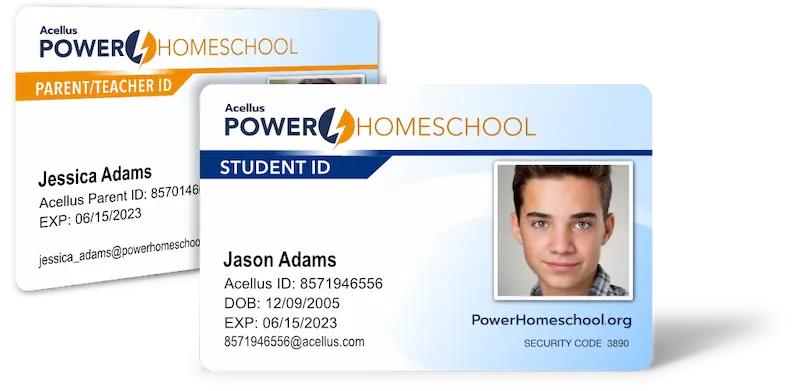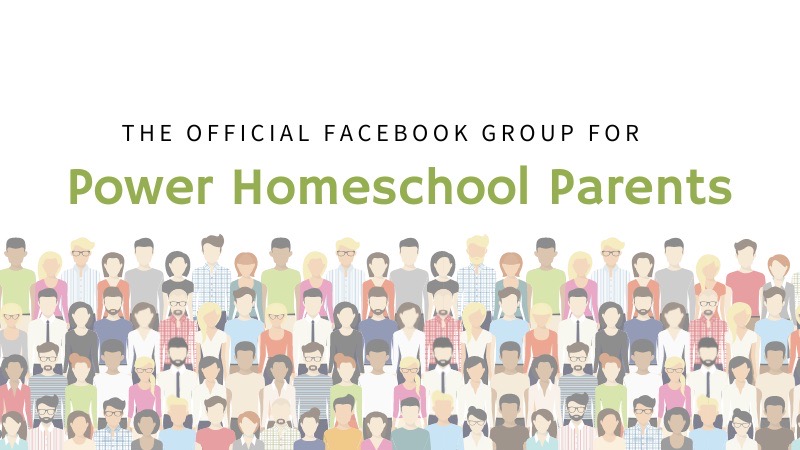
Guide to Homeschooling in Maine
Power Homeschool’s Homeschooling in Maine site highlights resources, helpful tips, support groups, and so much more!
Here are some useful resources that may be helpful as you are getting started.
Homeschool Laws and Requirements in Maine
Each state has different rules regarding a parent’s ability to homeschool their children and all the laws that they must follow.
Homeschool Associations and Support Groups in Maine
Some of the best resources to help homeschool families be successful are homeschool associations, support groups, and co-ops.
How to Start Homeschooling in Maine
If you have decided that homeschool is a good fit for your family, you are probably wondering how to get started with the whole process.
Field Trips Available to Homeschoolers in Maine
The flexibility to go on more field trips is one of the many perks of homeschooling.
Find out what Maine has to offer!
Resources
Maine Homeschool Laws and Requirements
Many states have rules and guidelines regarding parents homeschooling their children. Here are some links to help you find information regarding Maine homeschooling requirements.

Important Considerations for Homeschooling Success
Create a Study Plan
When using a homeschool in Maine, it is important to establish a clean environment where distractions are limited for your child to study on a regular schedule. Study routines are valuable for learning discipline. They also help your child stay on track with weekly, monthly and yearly academic goals. Create a schedule and expect your child to stick to it. Modify the schedule when necessary to help your child stay challenged while still able to achieve your expectations.
Read more: 10 Tips to Effectively Homeschool Online
Build Foundational Knowledge
As your child progresses in their studies, addressing gaps in their foundational knowledge will be crucial to their future success. For example, if your child struggles with basic math, it may become nearly impossible for them to master more advanced math concepts until they get help with their basic math challenges. In Acellus courses, Vectored Instruction automatically takes into account a student’s existing knowledge gaps and provides targeted interventions to bridge those gaps. If a student lacks the foundational understanding required for the new concept, the system automatically provides relevant remedial content before proceeding further.
It is crucial that students achieve early success with online learning so that their confidence will grow. Sometimes it may be necessary to place your child into an earlier course so they can begin experiencing success before they are ready to start moving forward with their learning.
Read more: Helping Your Student Excel in Acellus
KEEP RECORDS AND DOCUMENTATION
You should keep thorough records of your Maine homeschooler’s education. This will be beneficial when they apply for colleges or jobs after high school. Power Homeschool’s online parent portal automatically makes it easy to track progress, download coursework examples, attendance, and keep transcripts of classes taken.
It is also a good idea to get student ID cards and parent/teacher ID cards. Many retailers and venues offer teacher or student discounts that can be claimed by showing ID cards. A professional student ID card with a good quality identification photo included is also an good way to show that your student is enrolled is a reputable homeschool program.

Resources
Homeschool Associations & Support Groups in Maine
Although it is possible to homeschool Maine students without any outside help, there are plenty of groups and networks that can make the process easier for both parents and students. Homeschool associations, support groups, and cooperatives all exist to enhance the homeschooling process.
Maine has a statewide homeschool association called Homeschoolers of Maine (HOME). The Homeschoolers of Maine association shares resources, provides legal advice, and hosts events for homeschoolers in Maine.
In addition to its statewide association, Maine is full of homeschool support groups and co-ops. Homeschool support groups often meet in person; however, some communicate online and share advice and tips in a forum. Either way, these groups allow both parents and students to meet other homeschoolers in their area.
Homeschool co-ops are similar to support groups, but they are more academic-focused groups. These groups are volunteer-based, and parents usually take turns providing instruction to the groups. Students learn in group settings and develop valuable skills like teamwork and communication. Some support groups and co-ops are faith-based, while others are secular. You can also find groups that focus on certain subjects or activities. Most of these groups have Facebook pages or websites so you can easily find a group that fits your family’s needs with a simple search query. The following are just a few examples of the many different types of homeschool groups in Maine:
Check out our Power Homeschool Parent Support groups!
How to Start Homeschooling in Maine
If you are thinking about homeschooling for the first time, you will probably wonder where to even start. Power Homeschool’s Guide to Getting Started with Homeschool outlines steps that can help give you a path for how the transition process looks. First, you’ll want to research the homeschool laws and requirements in your state to make sure it will be a good fit for your family. Next, you will need to file the necessary paperwork. We also recommend officially withdrawing your student from their current school, whether it is required or not.
You will also need to create a homeschool curriculum or select one of the programs available. Power Homeschool’s online curriculum is available for K-12 students and offers a wide range of courses with interesting lecture videos and interactive coursework.
Resources
Homeschool Field Trips in Maine
Since homeschooling offers families more flexibility, they can participate in more experiential learning activities than the traditional classroom allows for. Maine has many different field trip destinations. The following are a few examples to give parents and students ideas on the options available in Maine.
- Katahdin Woods and Waters National Monument in Penobscot: Students can explore a wild landscape and learn about the flora, fauna, geology, and landforms of the area. While there, tour the Lumberman’s Museum to learn about Maine logging history.
- The Maine Solar System Model in Aroostook County: Exploring the large 40-mile scale model of our solar system will surely excite any student. This field trip will be a great addition to any unit about space and exploration.
- Museum L-A in Lewiston: Bates Manufacturing Company was once the largest textile manufacturer in New England. Today, the museum is home to machinery and artifacts, teaching visitors about the Industrial Revolution and behind the scenes operations.
- Emera Astronomy Center and Jordan Planetarium in Orono: Located on the University of Maine’s campus, this center is the perfect field trip to compliment astronomy and science units. The Planetarium offers programs and special events for visitors of all ages.
- Maine Discovery Museum in Bangor: This museum allows young learners to play and experiment with hands-on activities, engaging exhibits, and seasonal camps. Students can explore science, nature, geography, art, and so much more!
- Acadia National Park in Bar Harbor: Discover the natural beauty of the region, learn about plant and animal species, and see this wildlife first-hand. This natural park lines the Atlantic coast and offers miles of hiking trails, which are perfect for nature walks and exploration.
- Bowdoin College Museum of Art in Brunswick: As one of the earliest collegiate art collections in the nation, this museum houses thousands of pieces, including paintings, sculptures, pottery, and more.
- Maine Maritime Museum in Bath: Dedicated to the maritime heritage and culture of Maine, the museum has various exhibits and collections of documents, manuscripts, and artifacts that tell the story of maritime culture.
- Children’s Discovery Museum in Augusta: With plenty of hands-on exhibits, young learners will have plenty of ways to engage in educational play. This museum offers weekly programming and summer camps, as well.
- Maine State Capitol in Augusta: Touring the Maine State Capitol will be the perfect way to learn about Maine’s history, culture, and government. Visitors are welcome nearly every day, and guided tours are available for groups.
Other Articles You May Be Interested In:
How to Homeschool in Illinois Discussion
How to Homeschool in Illinois DiscussionJoin our Illinois homeschooling community. Connect with both new and experienced homeschoolers to find support, exchange stories, and get your homeschooling questions answered.Disclaimer: The information provided on this web...

The Positive Impact Homeschooling Can Have on Students’ Mental Health
Homeschooling has well-known benefits like robust technological platforms, personalized academics and flexible schedules. Plus, homeschooling could be a better choice for your family for numerous other reasons, including its impact on mental wellness. Understanding...

The Benefits of Ongoing STEM Education
It's no secret that education is the stepping stone to a long and enriching career. However, offering your child a well-rounded education opens the door to a world of opportunities even beyond their future jobs — with the right knowledge, kids can grow into capable...

Why Video-Based Instruction is Effective for Homeschool
Whether you are a parent currently homeschooling a pre-K-12 student or someone considering an online homeschool program, you must decide what tools to incorporate into your student's instruction. To help, we break down what a homeschool curriculum with video...









